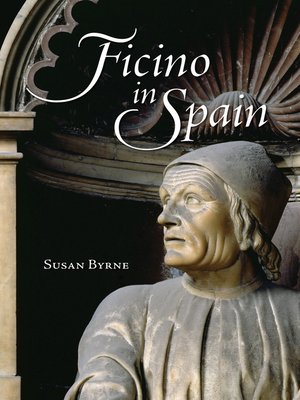
Sign up to save your library
With an OverDrive account, you can save your favorite libraries for at-a-glance information about availability. Find out more about OverDrive accounts.
Find this title in Libby, the library reading app by OverDrive.



Search for a digital library with this title
Title found at these libraries:
| Library Name | Distance |
|---|---|
| Loading... |
As the first translator of Plato’s complete works into Latin, the Florentine writer Marsilio Ficino (1433–99) and his blend of Neoplatonic and Hermetic philosophy were fundamental to the intellectual atmosphere of the Renaissance. In Spain, his works were regularly read, quoted, and referenced, at least until the nineteenth century, when literary critics and philosophers wrote him out of the history of early modern Spain.
In Ficino in Spain, Susan Byrne uses textual and bibliographic evidence to show the pervasive impact of Ficino’s writings and translations on the Spanish Renaissance. Cataloguing everything from specific mentions of his name in major texts to glossed volumes of his works in Spanish libraries, Byrne shows that Spanish writers such as Miguel de Cervantes, Lope de Vega, Bartolomé de las Casas, and Garcilaso de la Vega all responded to Ficino and adapted his imagery for their own works. An important contribution to the study of Spanish literature and culture from the fifteenth to the seventeenth centuries, Ficino in Spain recovers the role that Hermetic and Neoplatonic thought played in the world of Spanish literature.







